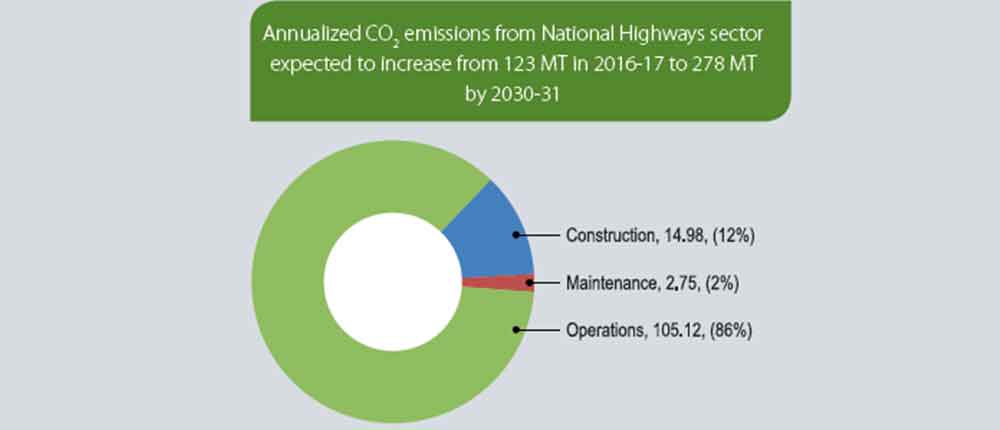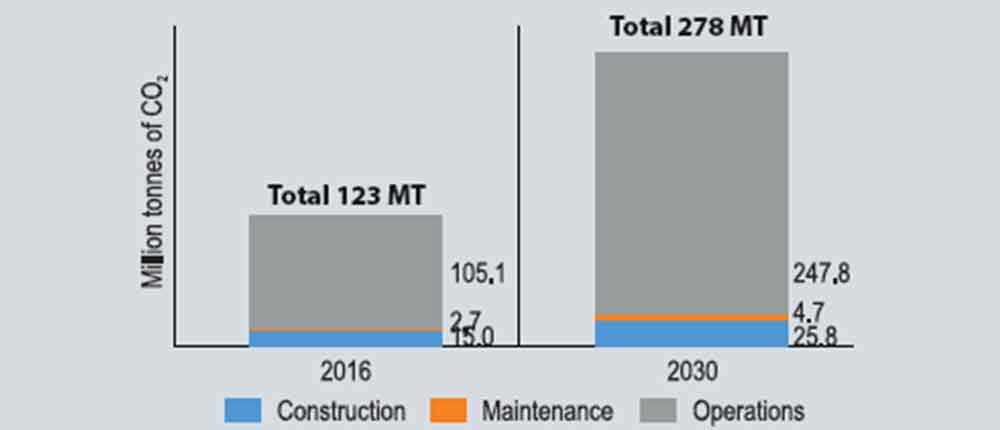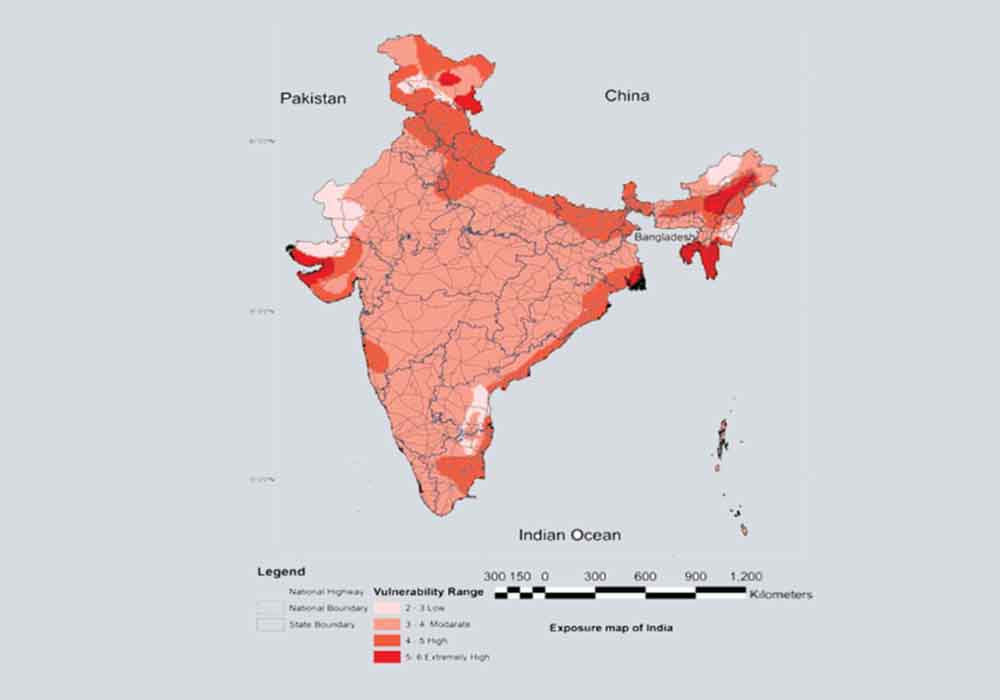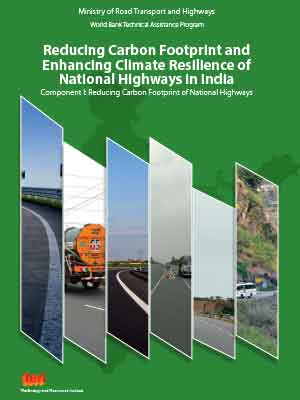Reducing Carbon Footprint and Enhancing Climate Resilience of National Highways in India
The development of highways is critical for any country for faster movement of passengers and freight, leading to increased national productivity and socio-economic growth. India has for long realized the importance of highways and has been giving an impetus to accelerated development of National Highways (NHs) in the country. The Government of India has launched various programmes to build new highways and improve and upgrade existing highways in order to meet the ever-growing transport demand. The target is to construct 20-30 km on a daily basis.
Authors: Akshima T Ghate, Riya Rahiman, Sharif Qamar

The construction and subsequent use of highways have implications in terms of increased use of energy and the generation of carbon dioxide (CO2) emissions.

There is a growing realization that the transport sector, especially the NH sector, should bring down its dependence on fossil fuels and reduce its carbon footprint. Additionally, the sector is also required to build resilience to climate change impacts in order to reduce risks and protect the highway infrastructure from impacts of climate change, such as sea-level rise, extreme precipitation, rising temperature, and climate-induced extreme events. This requires an understanding of the carbon emissions emitted from the highway sector and an assessment of vulnerability of NHs to extreme weather events induced by climate change.

Realizing the importance of both carbon mitigation and building resilient infrastructure, The Energy and Resources Institute (TERI) undertook this study with the support of the Ministry of Road Transport and Highways and the World Bank. Aim of the study was to estimate the carbon emissions from the National Highways sector (from construction, operations, and maintenance activities) and recommend methods to reduce the same, and to suggest methodologies and interventions to assess and reduce vulnerability of the highways sector to climate change-induced extreme weather events.

The study is divided into two components:
- Component I of the study focusses on estimating and suggesting measures to reduce the carbon footprint of NHs sector
- Component II of the study focusses on suggesting methodology for assessing and enhancing climate resilience of the NHs sector


